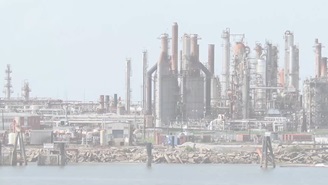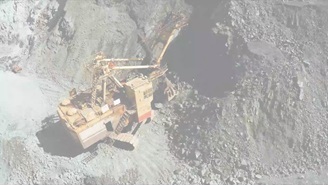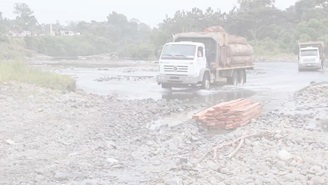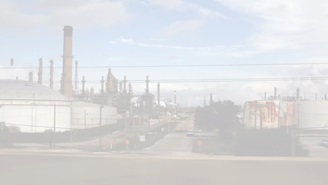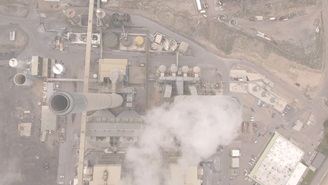A Case for Impact Investing in Public Equities
As awareness around environmental and social issues has grown, so has the number of investors who deliberately seek to allocate capital to create positive social and environmental impact. Impact investing is as old as the sustainable investment industry, with the bulk of strategies to date having been executed through private equity and debt vehicles. However, as a more diversified pool of investors look to adopt impact investing strategies, fueled by the United Nations’ Sustainable Development Goals (SDGs) and the Paris Climate Agreement, a broader set of asset classes are being considered – here enters public equities.
Sustainable Finance and the EU Taxonomy: Developments from the Trilateral Negotiations
As global leaders meet in Madrid for the COP25 amid mounting concern over the international response to climate change, the EU Taxonomy experienced a setback with the UK and France blocking the plans. The new framework, intended to drive financial flows that will accelerate the shift to a low carbon future, will likely become a global standard affecting investors around the world. If enacted, it could cement the EU’s position as the world’s pace setter on climate legislation.
PFAS Sparks a Wave of Litigation in the U.S. Chemical Industry
In 2019, a wave of litigation related to per- and polyfluoroalkyl substances (PFAS) emerged in the United States, as several states filed lawsuits against PFAS manufacturers, including DuPont, Chemours and 3M. This legal action accompanies increased regulatory scrutiny of this potentially risky class of chemicals. In this article, we will focus on the risks chemical companies face related to PFAS contamination of drinking water in the United States and the ESG risks posed to chemical companies and their investors.
Revising Mining Codes: Equality for Nations or Nationalization?
In recent years, an increasing number of nations, particularly in Africa, have been amending their mining codes. Governments likely view these amendments as a way of getting more for their people from their natural resources. But are these amendments slowly leading to the nationalization of the sector in some of these countries and how are the companies reacting?
The Impact of Country ESG Risks on Company Operations
In this article we explore how operating in Peru affects the world’s second largest mining producer of precious metals, Barrick Gold. Based on analysis from our recently launched Country Risk Ratings, we discuss how the challenges facing Barrick’s mining operations in Peru are strongly influenced by the country’s ESG risks.
Brazil: Deforestation in the Global Context - Part 2
In our previous blog post, we detailed the impact that the new Brazilian government’s policies have had on deforestation and could have on Brazil’s Indigenous Peoples. In this second article, we will explore how material recent developments in Brazil could be for the companies, communities and financial institutions involved. We will also take a closer look at Brazilian meat processing company JBS SA (JBS) and the consequences it may face due to international concern over deforestation.
Emerging market equities, ESG risk and sector tilts
The International Monetary Fund’s (IMF’s) recent downward revision to its projections of near-term global expansion reflects growing concerns about brewing market tensions. Central issues affecting capital markets include trade disputes between the US and China, Brexit and subdued investment and demand for consumer durables. According to the IMF’s latest outlook, global real GDP will grow 3.2% in 2019 and 3.5% in 2020 – a downgrade of 10 basis points (bps) for each year compared to the IMF’s previous outlook last April.[i]
The fairy-tale of Faroese fish farming
Aquaculture is the fastest growing food production sector in the past 20 years. It will become vital in meeting the rapidly increasing demand for seafood, and is expected to provide 50 per cent of total seafood consumed in the coming years.[i] Contributing to an increased protein supply and global food security, aquaculture also carries many risks. These risks include the potential spread of diseases and parasites, use of antibiotics and pesticides, and the escape of fish from fish farms which can jeopardize wild populations.
Brazil: Deforestation in the Global Context
On January 1, 2019, Jair Bolsonaro began his tenure as the president of Brazil. On his first day in office, he signed several decrees aimed at increasing power for the Ministry of Agriculture, at the expense of the Ministry of Environment. According to NGOs, this indicates a shift in government priorities away from environmental stewardship and protection of Indigenous rights towards bolstering the agricultural industry’s interests.
The business case against letting the well run dry
Do you believe climate change is a problem needing urgent attention? Have extreme weather events got you thinking about the personal or professional risks you face? Are you interested in how the global population will be fed in the future? Concerned about the mass migration of people in search for a better life? Worried about the outlook of energy production? If you answered yes to any of these questions, then you may also want to consider the vital element connecting all of the above: water.
Implications of the use of rare-earth elements in the wind energy market
Investors who are bullish on renewable energy are often drawn to the wind energy market. Alongside solar, wind energy has been rapidly adopted worldwide and continues to receive significant investments compared to other renewables.[i]
Mexican companies remain dedicated as government backtracks on climate commitments
Since taking office in December 2018, Mexico’s president Andres Manuel Lopez-Obrador, often referred to as AMLO, has not inspired much hope among investors in the country’s energy sector. The first six months of his presidency has confirmed investor concerns that the privatizing of the energy industry would be rolled back under AMLO, who has made energy sovereignty a cornerstone of his administration’s agenda. The contracts issued under the 2013 energy reforms have been placed under review and the energy auctions for oil, natural gas and renewables projects that were scheduled for 2018 were cancelled. The energy auctions scheme was introduced in 2015 as a key measure to achieve Mexico’s energy reduction commitments of 30 per cent and 35 per cent by 2021 and 2024, respectively.
High and Dry Down Under: Water Risk in Australia
In June, Sydney introduced water restrictions[i] amid an ongoing two-year drought in New South Wales. Authorities stated that the city was experiencing some of the lowest inflows into its catchment dams since the 1940s. At the end of the month, the City of Sydney also officially declared a climate emergency[ii], joining over 600 other local governments around the world.
ESG Ratings: A Rebuttal of Prevailing Criticisms
“No offence, but…”. This has become a common introduction to questions directed at environment, social and governance (ESG) rating providers and reflects a body of criticism centered on the premise that ESG research and ratings are fundamentally flawed.
Earth Day 2019 | The Water Scarcity Challenge
Earth Day 2019 is focused on protecting the species that make up our natural environment. With nearly three-quarters of the Earth’s surface covered in water, it’s a natural resource that we can’t take for granted. Human activity has irrevocably impacted this natural resource, affecting the quality and quantity of water available for consumption and for the natural habitat. In this article, we examine the role companies can play in addressing this water crisis and the potential opportunities for investors to support solutions.
Passive ESG Investing: Q4 2018 Sample Portfolio Analysis
The global equities market experienced substantial growth over the first quarter of 2019 as the FTSE All-World (AW) index returned 12.5%. But this growth spurt comes on the tail of a significant selloff during the preceding quarter; the total return of the FTSE AW over Q4 2018 sunk to -12.6%.[i]
Sustainalytics’ Carbon Risk Rating: Platypus Asset Management Live Test
Climate change is at the centre of public debate: from school strikes around the world to a recent landmark court ruling blocking a new coal mine in Australia on climate grounds. It is also increasingly becoming an investment risk and investors are looking to understand how this risk can affect their portfolios.
How will ESG investing fare in a volatile or bear market?
Much has been written about the rise of responsible investing and environment, social and governance (ESG) integration over the past decade. From 2014 to 2016, assets that systematically considered ESG factors in the investment process grew from USD 7.5 trillion to USD 10.4 trillion, with continued momentum over the past several years[i]. However, recent commitments to ESG integration (vs. values-based strategies) have yet to be tested by a significant market downturn. The spike in market volatility experienced in late 2018 has led some to question whether the consideration of ESG factors by investors will continue to flourish in a market environment characterized by investor fear and valuation corrections.
Self-Driving Technology: Risks and Opportunities through an ESG Lens
As technology and automobile companies race to bring autonomous vehicles (AVs) to the road, we consider the ESG risks and opportunities facing this disruptive technology. Estimates of when AVs will be fully automated vary (Figure 1); however, the consensus is that AVs are inevitable and different stages of automation will be slowly introduced.
Preparing for the Storm: Extreme Weather Events and the Chemicals Industry
In 2017, extreme weather events (i.e., hurricanes and flooding) resulted in USD 344 million in economic losses, globally.[i] Chemical companies are particularly exposed to this risk due to their concentration of assets in regions prone to extreme weather events, such as the Gulf Coast region of the United States. This region is home to several refining and petrochemical plants, and to more than half of the country’s downstream chemical production.[ii] With growing investor concern about the physical impacts of climate change and extreme weather events, we examine chemical companies’ preparedness to face this material issue. We also take a closer look at Arkema as a case study.



